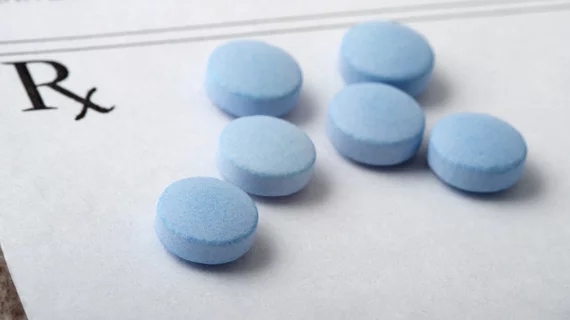Antidepressants, other common medications linked to high blood pressure
Antidepressants, nonsteroidal anti-inflammatory drugs (NSAIDs) and oral steroids are just some of the medications that could inadvertently raise a person’s blood pressure, according to new data scheduled to be presented May 16 at ACC.21, the American College of Cardiology’s 70th annual scientific session.
The study’s authors tracked data from more than 27,000 participants who responded to the National Health and Nutrition Examination Survey from 2009 to 2018. Forty-nine percent of those participants either had hypertension or had been told they had high blood pressure by a physician. The average age was 55 years old, and 52% were male.
Overall, the authors found that several common medications were directly associated with high blood pressure. While 9% of participants reported taking antidepressants, the numbers were also high for NSAIDS such as ibuprofen and naproxen (7%) and oral steroids (2%). Antipsychotic medications, certain oral contraceptives and decongestants may also be associated with elevated blood pressure, the team observed.
“These are medications that we commonly take—both over-the-counter and prescribed medications—that may have the unintended side effect of raising blood pressure and could have adverse effects on our heart health,” lead author John Vitarello, MD, an internal medicine resident at Beth Israel Deaconess Medical Center in Boston, said in a prepared statement. “We know that high blood pressure leads to cardiovascular disease, stroke and death and even small increases in blood pressure can have meaningful impacts on cardiovascular disease. Based on our findings, we need to be more aware of polypharmacy (the use of multiple medications by a single patient) in older adults who also have the highest burden of high blood pressure.”
One key limitation to the team’s work was that it was based on self-reported findings without a confirmed diagnosis for each participant. Additional research is still needed, they said, to learn more about how a person’s blood pressure can be unintentionally impacted by the medications they take.
More information on ACC.21 is available here.

